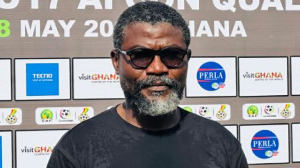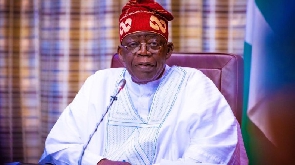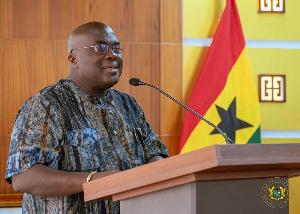The former Speaker of Parliament, Professor Aaron Michael Oquaye, says the Legal Aid Scheme in Ghana should be re-examined and financed by the state, especially in relation to vulnerable groups such as women, persons with disability.
He added that the country should expand “the parameters of pro-bono cases” as lawyers took principled stance in cases.
Prof. Oquaye was speaking at the 16th edition of Re-Akoto Memorial Lectures on “The legacy of Baffour Osei Akoto: A Family Man, a Chief and Statesman” on Wednesday, at the Great Hall of Kwame Nkrumah University of Science and Technology, Kumasi.
His lecture among others, looked at the significance of Baffuor Osei Akoto in the past and contemporary Ghanaian politics with regard to the political tradition he inspired and belonged, adding that Re: Akoto Celebrations should open the gateways and ring bells of remembrance that our national motto requires justice to all as the essence of freedom
Baffour was a founding member of the National Liberation Movement in the 1950s which eventually joined forces with other parties to form the United Party and subsequently the New Patriotic Party sought to ensure checks and balances in governance and to put some restraints on the central government.
Prof. Oquaye said “indeed, every year, we must celebrate those who stood against dictatorship and the one lawyer who boldly defended and upheld the human rights of others until he was arrested under the PDA for his “inhibitive” inclinations, kept chained in prison, deprived of medical attention and finally left to die.”
“An essential ingredient in the political relevance of Baffuor Osei Akoto is the danger in over-concentration of political power at the centre. Incidentally, a lingering problem in Ghanaian politics is that too much power emanates from the Centre, tending to place the stakes too high in elections. This generates undue tension and tension in the body politic not healthy for politics,” he added.
The former Speaker of Parliament said the essence of constitutionalism was the existence of countervailing power, explaining that “countervailing powers in the State are strengthened; where there is diffusion of power; when several parameters are factored into the application of powers and functions, then the winner takes all syndrome is diffused.”
He also touched on decentralisation saying “we should strengthen our local authorities to take care of development, education, health, sanitation etc. Local self governance is a vital area of power-sharing which will encourage local self governance, improve the quality of life and lessen the feeling of some winner taking all.”
Touching on institution of Parliament, Prof. Oquaye said a number of factors had undermined Parliament vis-à-vis the Presidency.
“The first problem lies in the selection of the majority of ministers from Parliament. As a result, MPs from the majority side await to catch the eyes of the President rather than the Speaker’s! MPs rush to the Castle and appeal for membership of Boards and other largesse from the winner – the President. The oversight responsibility of Parliament is thereby undermined and the body politic feels that indeed the President is the only winner and he has taken all.
This difficulty, cannot be cured by proportional representation. Our history has taught us that once a small political party is promised ministerial positions, it joins the majority side and its members become as docile as the other on the majority side.”
Other speakers were Minister of Food and Agriculture, Dr Owusu Afriyie Akoto, Mr Kwame Pianim, an economist, the Attorney General and Minister of Justice Godfred Dame.
General News of Saturday, 1 May 2021
Source: www.ghanaiantimes.com.gh













